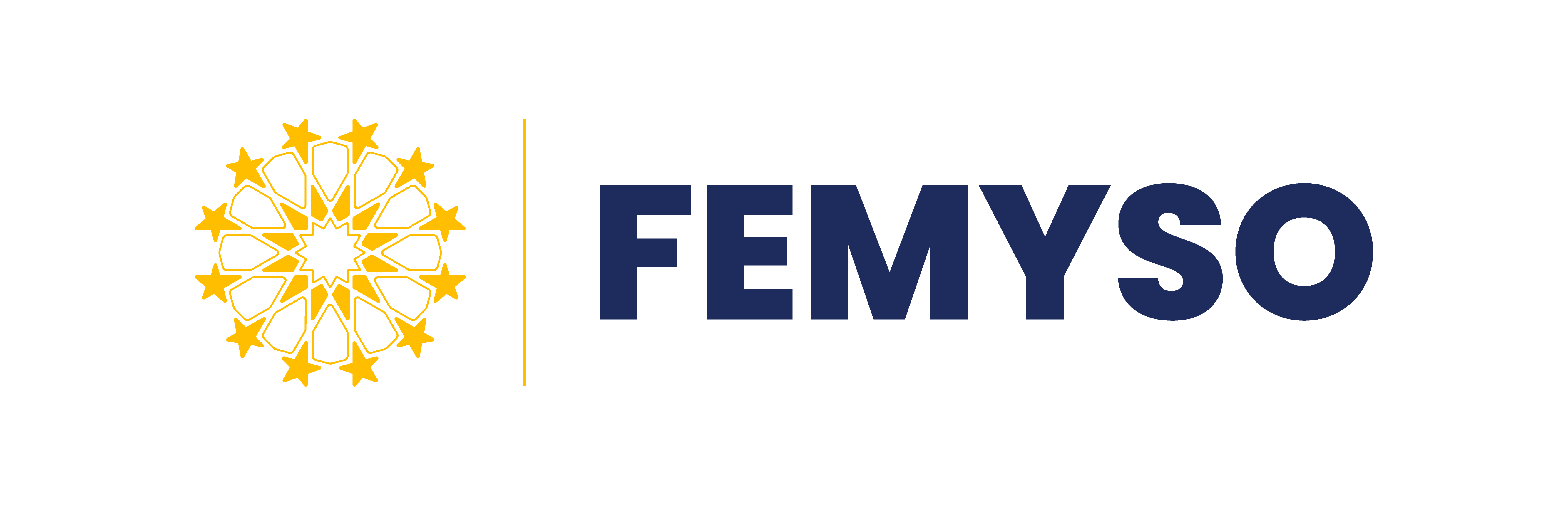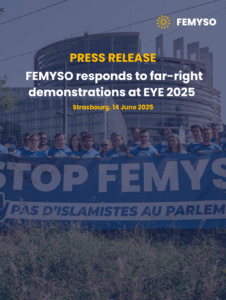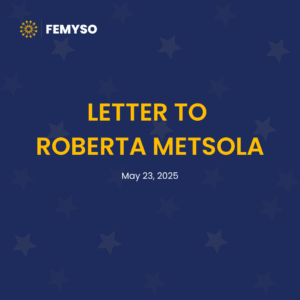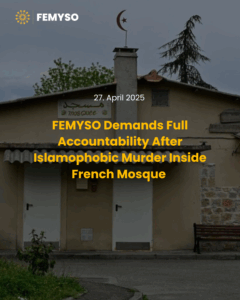In the face of rising racism, scholars, activists and civil society organisations express their support for the UN Working Group on People of African Descent, and call on the UN to heed the call for reparatory justice
To the Human Rights Council, the High Commissioner for Human rights and the General Assembly of the United Nations
In the midst of growing international calls that Black Lives Matter and the enduring legacies of enslavement and colonialism be repaired, we – the undersigned – express our strong support for the UN Working Group of Experts on People of African Descent, urge the UN to more vigorously insist on the effective implementation of the International Decade for People of African Descent 2015-2024, and also call on the UN to heed the growing international call for reparatory justice.
The Working Group is a result of the third UN World Conference Against Racism in Durban, South Africa, 2001. Article 7 of the Durban Declaration and Programme of Action calls upon the Commission on Human Rights “to consider establishing a working group or other mechanism of the United Nations to study the problems of racial discrimination faced by people of African descent living in the African Diaspora and make proposals for the elimination of racial discrimination against people of African descent”.
The existence of the UN Working Group of People of African Descent is critical in the continued implementation of the Durban Declaration and Programme of Action – which remains the world’s most comprehensive human rights instrument against racial discrimination.
The Working Group is a unique UN mechanism to monitor structural racism against African peoples – including Africans and people of African descent – around the world, give voice to and support civil society efforts to fight the highly racialised forms of racism that African peoples are subjected to and to advise Governments on how to ensure non-discrimination and the full and equal enjoyment of human rights for African peoples around the world.
As defined by the Human Rights Council Resolution 9/14 from 2008, it belongs to the mandate of the Working Group:
“(a) To study the problems of racial discrimination faced by people of African descent living in the diaspora and, to that end, gather all relevant information from Governments, non-governmental organisations and other relevant sources, including through the holding of public meetings with them;
(b) To propose measures to ensure full and effective access to the justice system by people of African descent;
(c) To submit recommendations on the design, implementation and enforcement of effective measures to eliminate racial profiling of people of African descent;
(d) To make proposals on the elimination of racial discrimination against Africans and people of African descent in all parts of the world;
(e) To address all the issues concerning the well-being of Africans and people of African descent contained in the Durban Declaration and Programme of Action”.
This mandate is critical since African peoples were victims of the crime against humanity of enslavement and systems of colonialism and continue to be victims of their consequences. Around the world African peoples continue to be particularly vulnerable to racial discrimination based on Afriphobia, structural discrimination, exclusion, invisibility and marginalisation. The role of the UN Working Group is therefore also unique in that it offers expertise on how the histories and effects of enslavement and colonialism continue to shape the lives of African peoples and the sort of measures that are needed to repair these legacies.
This role of the Working Group is not merely important for people of African descent, but in the long-run it serves to break down racial hierarchy more generally, strengthen the unity of the human family and ensure the full integration of equality and non-discrimination as fundamental human rights principles.
Among the many accomplishments of the Working Group is the establishment of the UN International Decade for People of African Descent 2015-2024. Within the framework of this Decade, the Working Group has also been responsible for pushing for a UN Permanent International Forum for African Peoples and a Declaration for the Rights of African Peoples.
We are very concerned that today there are forces that want to undermine the existence of the Working Group. We are also very concerned that so far there has been little international recognition of the UN Decade and its objectives. The neglect that the Decade so far has been met with is symptomatic of an unwillingness to face up and bring justice to the enduring legacies of colonialism and enslavement.
Given all this, we strongly urge the Human Rights Council, the High Commissioner for Human rights and the General Assembly of the United Nations to in word as well as in deed assert its support for:
The Working Group, and also further strengthen its mandate by making sure that its members are recruited among the foremost experts in the world on people of African descent;
The International Decade for People of African Descent 2015-2024, including the development of a Declaration for the Rights of African Peoples and a Permanent International Forum for African Peoples;
An international UN conference on reparatory and restorative justice for enslavement and colonialism.
Signed by,
1. Action for Equality, Support, Antiracism (KISA), Cyprus
2. Richard Adams, Chairman of the Board, Institute of the Black World (IBW), USA
3. ADEFRA Grassroots e.v., Germany
4. African Diaspora Youth Network in Europe (ADYNE)
5. African Empowerment Center, Denmark
6. Afro-Colombian Solidarity Network (ACSN), Colombia
7. AK Panafrikanismus – Panafricanism Working Group Germany, Germany
8. The Anti-racist Academy (ArA), Sweden
9. James Early, Institute for Policy Studies Board, USA
10. Arturo Escobar, Kenan Distinguished Professor of Anthropology at the University of North Carolina at Chapel Hill, USA
11. Asociación de Consejos Comunitarios de Guapi (ASOCONGUAPI), Colombia
12. Asociación de Consejos Comunitarios de Timbiquí (ASOTIMBIQUÍ), Colombia
13. Asociación para la Defensa del Medio Ambiente y la Cultura Negra (ASO MANOS NEGRA), Colombia
14. Autoridad Nacional Afrocolombiana (ANAFRO), Colombia
15. Prof. Sir Hilary Beckles, Chair of the CARICOM Reparations Commission, Jamaica
16. Gurminder K Bhambra, Professor in Sociology, University of Warwick, United Kingdom
17. Black Study Group, United Kingdom
18. Blaksox, United Kingdom
19. Fernne Brennan, Senior Lecturer in Law at the University of Essex and Senior Advisor to the Expert Advisory Group for the Slave Trade Reparations project (STeR), United Kingdom
20. Caribbean Philosophical Association (CPA)
21. Monica Carrillo, Director of LUNDU Centro de Estudios y Promoción Afroperuanos — Center for Afro-Peruvian Studies, Peru
22. Augustus Casely-Hayford, Historian, Curator and Broadcaster, United Kingdom
23. Empress Ijahnya Christian, Ethiopia
24. Conseil des Communautés Africaines en Europe et en Belgique , Belgium
25. Conseil Représentatif des Associations Noires (CRAN), France
26. Imaniyé Dalila Daniel, Artist, Martinique
27. Dr. Ron Daniels, President of the Institute of the Black World (IBW) and Convenor of the National African American Reparations Commission (NAARC), USA
28. Decades of Heroes for the Elimination of Racism and Oppression (D’HERO), The Netherlands
29. Marcelo Dias, President of the Reparations Commission of the Bar Association of Brazil — da Ordem dos Advogados do Brasil / Seção Rio de Janeiro (OAB/RJ), Brazil
30. Ejim Dike, Executive Director of the US Human Rights Network, USA
31. Alejandra Egido, President of Todo en Sepia Asociacion de Mujeres Afrodescendientes en la Argentina (TES), Argentina
32. European Network Against Racism (ENAR)
33. European Network of People of African Descent (ENPAD)
34. Fight Racism Now (FRN), Sweden
35. El Foro Interétnico Solidaridad Chocó (FISCH), Colombia
36. Forum of European Muslim Youth and Student Organizations (FEMYSO), Belgium
37. The Frantz Fanon Foundation, France
38. Manuel Garcia-Orozco, Chaco World Music Nueva York, USA
39. Global Afrikan Congress UK (GACuk), United Kingdom
40. Stephen Haymes, Associate Professor of Educational Policy and Research, DePaul University, USA
41. Zita Holbourne, National Co-Chair and Co-Founder of Black Activists Against Cuts UK (BARAC UK), PCS Union National Executive and member of TUC Race Relations Committee, United Kingdom
42. Grupo de Academics e Intelectuales en Defensa del Pacifico Colombiano (GAIDEPAC) — Group of Academics and Intellectuals in Defense of the Colombian Pacific, Colombia
43. Gus John, Associate Professor of Education at the University College London and member of the African Union Sixth Region Technical Committee of Experts, United Kingdom
44. The Immigrant Parents & Guardians Support Association (IPGSA), Ireland
45. Initiative Schwarze Menschen in Deutschland (ISD), Germany
46. El Instituto Mexicano de Derechos Humanos y Democracia A.C (IMDHD) — The Mexican Institute for Human Rights and Democracy, Mexico
47. Justice 21, Bulgaria
48. Alnoor Ladha, Executive Director of The Rules, South Africa
49. Cristian Baez Lazcano, Director of Afrochilena Lumbanga, Chile
50. Firoze Manji, Daraja Press, Kenya, Québec -Canada
51. Migrant Tales, Finland
52. Movimento Negro Unificado (MNU), Brazil
53. Narrative Eye, United Kingdom
54. National African American Reparations Commission (NAARC), USA
55. Carlos Alvarez Nazareno, President of Agrupación Afro Xango, Argentina
56. Miguel Angel Avila Nazareno, Coordinator General of Proceso AfroAmerica XXI – Ecuador, Ecuador
57. New Urban Collective (NUC), Netherlands
58. Denise Noble, Senior Lecturer in Sociology and Black Studies at Birmingham City University, United Kingdom
59. Operation Black Vote (OBV), United Kingdom
60. Organização para Libertação do Povo Negro (OLPN), Brazil
61. Oxford Pan-African Forum (OXPAF), United Kingdom
62. Pan Africanism Working Group, Germany
63. Pan African Movement for Justice, Sweden
64. Mai-Elka Prado, Founder of Festival Afrolatino de Nueva York, USA
65. Amilcar Priestley, Director of Afrolatino Project, New York, USA
66. Proceso de Comunidades Negras en Colombia (PCN), Colombia
67. Raad van Afrikaanse gemeenschappen in Europa afdeling Vlaanderen, Belgium
68. Rhodes Must Fall Oxford (RMFO), United Kingdom
69. Azeneth Báez Ríos, President of De Mujeres Afrochilenas Hijas de Azapa, Chile
70. Don Rojas, Director of Communications, Institute of the Black World (IBW), USA
71. Kitimbwa Sabuni, Secretary General, the Afro-Swedish National Association, Sweden
72. Lisa Scott, CEO of Afropresencia, Nueva York, USA
73. Kris Sealey, Associate Professor in Philosophy and Director of the Peace and Justice Studies Program at Fairfield University, USA
74. Robbie Shilliam, Professor in International Relations, Queen Mary University of London
75. Stephen A. Small, Associate Professor of African American and African Diaspora Studies, University of California Berkeley, USA
76. Soul Rebel Movement, Netherlands
77. Antumi Toasijé, Centro Panafricano and Centro de Estudios Panafricanos, Spain
78. Opal Tometi, Executive Director of Black Alliance for Just Immigration and Co-founder of Black Lives Matter, USA
79. Stanley C. Trent, Associate Professor in Education, University of Virginia, USA
80. Aminata Dramane Traoré, Author and former Minister of Culture and Tourism of Mali, Mali
81. The Ubele Initiative, United Kingdom
82. Hanétha Vété-Congolo, Professor and Chair of the Romance Languages and Literature Department at Bowdoin College, USA
83. Patrick Vernon OBE, Trustee of the Bernie Grant Trust, United Kingdom
84. Group of Academics in Defence of the Pacific and Afro-Descendant Communities (GAIDEPAC), Colombia



